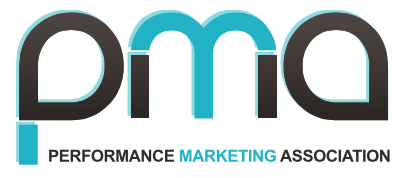
Big Affiliate Marketing Compliance News Day
Compliance may not be most people’s favorite affiliate marketing topic, but some days the news is just too big not to share in the hopes of starting conversations. If you are in the PMA member Slack, you know that a couple of really interesting things happened in the last 24 hours!
FTC Cracks Down on AI Generated Reviews
The FTC launched Operation AI Comply, an initiative aimed at companies using artificial intelligence (AI) in such a way as to “supercharge deceptive or unfair conduct that harms consumers.” Among the actions announced today was on against an AI tool that allowed its customers to create reviews.
Rytr is a generative AI service that allowed its users to enter a product or service as a prompt and it would generate a review or testimonial of it. Users could select thet desired “tone” of the review and input keywords, phrases, and titles. The users could also choose the level of “creativity” they desired of the review.
Based on the input, Rytr would generate a “genuine-sounding, detailed review quickly and with little user effort.” One example from the complaint was a review for a “Gucci GG Canvas Messenger Bag Replica Red 449172.” Other examples were more general such as “dog shampoo.”
Subscribers were generating thousands of reviews using the service. While most generated between 100 and 1,000 reviews, there were actually 24 subscribers who generated over 10,000 reviews EACH. As a result, the FTC determined that the service “causes or is likely to cause substantial harm to consumers” given the ability to quickly generate so many fake reviews that customers could rely on.
Things to think about: Who all is liable when someone uses an AI service to create monetized reviews? How much AI can be used on a review and have it not be considered fake?
UK Rulings on Subnetworks and Disclosure Responsibility
Across the pond in the UK, the Advertising Standards Authority (ASA) issued several rulings that focused on disclosure of affiliate links and subnetworks. The ASA “is the UK’s independent regulator of advertising across all media.”
While the specifics of each incident were different, the fact patterns were essentially the same. An influencer used subnetwork links without properly disclosing that the links were marketing communications. Similar to our FTC Endorsement Guides, the Committee of Advertising Practice (CAP) requires that marketing communications “must be obviously identifiable as such.”
Although these cases were not in the U.S., they are very pertinent because the companies involved almost all operate in the U.S. and the guidelines are very similar.
The brands all responded that the influencers had either used network affiliate links or links through the subnetworks as opposed to direct contractual relationships. The networks responded that they merely provide technology to track transactions but do offer tools for compliance. The subnetwork responded that it is a “tech-enabled partner for creator guided shopping” and just a platform for brands to connect with creators. While they do require creators to include disclosures, they responded that they “had thousands of creators and it was not possible for them to read every post.”
In one of the cases, the ASA ruled that the brand was responsible despite using the subnetwork as an intermediary. “We understood that [brand] had not had direct control of the way in which the affiliate links and related content were presented in ad (a). However, because they were the brand which benefitted monetarily from the affiliate marketing, we considered they were jointly responsible for the ad and its compliance with the Code.”
All of the rulings taken together highlight the importance of understanding who is liable for monitoring disclosure compliance when many different companies are a part of the transaction chain.
The actions can be found here, here, here, and here.
Upcoming FTC Webinar
Good timing that the PMA is having a webinar with an attorney from the FTC next week! We will be diving deep into the new Rule on consumer reviews and how it pertains to affiliate marketing. Register now to get access to the webinar and bring your questions!
(Disclosure: I’m not an expert on UK law… so if anything is amiss in my interpretation, please feel free to reach out to me!)
Latest posts by Tricia Meyer (see all)
- PMA Council Spotlight: Influencer and Creator - February 18, 2026
- New PMA Webinar: The Consumerization of B2B - February 11, 2026
- New PMA Download: Retailer Affiliate Agreements Guide - February 9, 2026

 Follow
Follow